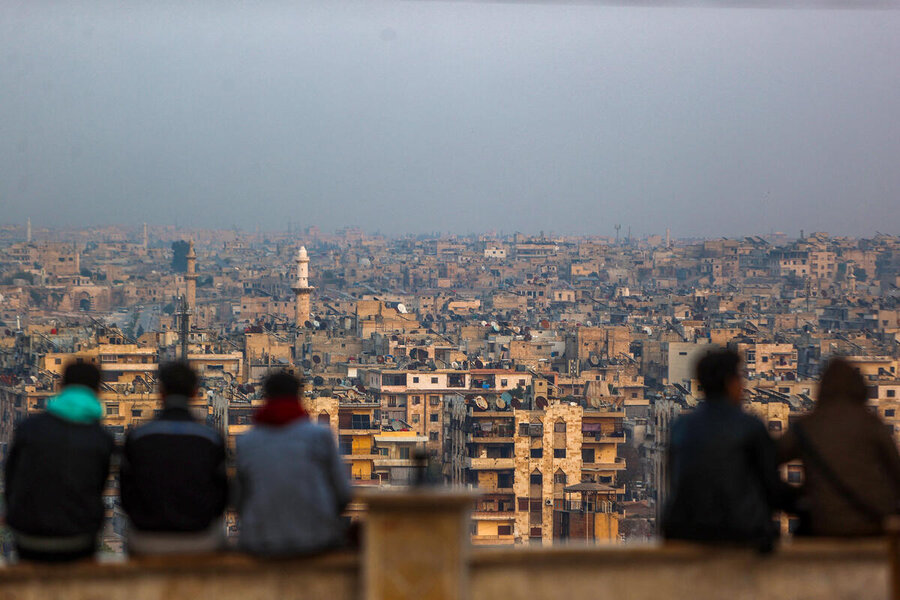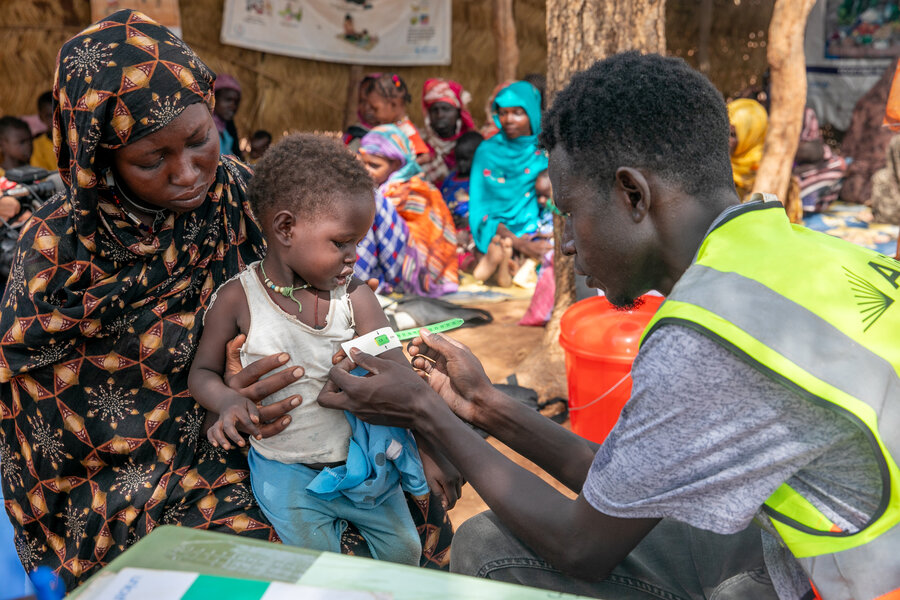The World Food Programme (WFP) is joining calls for the international community to act as a surge in fighting displaces hundreds of thousands of people in camps in the east of the Democratic Republic of the Congo. As of 27 January, the escalation of violence had overwhelmed Goma, the largest city in the east. “Goma falling is the worst thing that we could possibly imagine happening in North Kivu,” said WFP Country Director for DRC, Peter Musoko. “It means we have an urban city centre with a lot of very frustrated and vulnerable people all looking for assistance..” WFP is monitoring the situation to deliver aid where possible. The aim is to reach 800,000 people in North Kivu, South Kivu, and Ituri – 5.1 million people were already displaced across the three eastern states before the current crisis. You can support WFP’s work by donating here.
WFP
The World Food Programme urges the international community to increase funding and support a full-scale humanitarian response to address the urgent food security needs of over 2 million people in Gaza.
The term "food basket" is often used to describe a form of assistance the World Food Programme provides to people caught up in crisis. Here's what it means
The Indian Ocean tsunami of 26 December 2004 – unleashed by an earthquake off the coast of Indonesia measuring 9.1 on the Richter scale – triggered the “most complex and wide-reaching emergency operations ever mounted” by the World Food Programme (WFP). The Tsunami also struck the Maldives, Myanmar, Sri Lanka, Thailand and even Somalia. Entire coastal communities were wiped out and an estimated 228,000 people were killed. Banda Aceh, in Indonesia, was the epicenter of devastation. WFP photographer Rein Skullerud recalls heart-wrenching scenes after flying into the city, as the world rallied to help survivors.
Despite restrictions on women in Afghanistan, the Sharifa sisters have built a thriving business with WFP's support. In other countries, farmers tackle the climate crisis, women create savings groups, communities reduce food waste, and support nutrition through traditional crops. In looking back at a year in which the World Food Programme has been responding to major crises - including Gaza, Sudan and Haiti - it's time to shine a light on other equally important aspects of WFP's work. Alongside its work in emergencies, its resilience-building activities empower people to create food security over the long term; saving lives and changing lives. Here are a few stories you may have missed.
The World Food Programme is urgently seeking $250 million to support 2.8 million displaced and food-insecure people across Syria. Ongoing conflict has exacerbated the food security crisis, with 12.9 million Syrians affected by food insecurity. Disrupted supply routes, soaring food prices, and a weakening currency have deepened the crisis. While WFP has been providing critical food aid, additional funding is essential to continue these efforts and prevent further hardship in the region.
A World Food Programme convoy recently reached North Darfur’s Zamzam camp, delivering food to 12,500 people amidst dangerous terrain and conflict.
“We want people to scream at the top of their lungs saying enough is enough […] We as humanity will not tolerate this, regardless of what and where it is happening.”
Arif Husain has spent the past decade raising his voice on behalf of those struggling to get enough to eat. Now Chief Economist at the World Food Programme (WFP), he is calling for the world to put a stop to mass hunger.
There is no shortage of food in the world, yet WFP says the number of people going hungry has more than doubled in the past five years. In this episode of Awake at Night, Arif Husain reflects on how the deadly trio of conflict, climate change and economics conspire to breed hunger, and offers listeners hope from a surprising source.
Photo: ©WFP/Inger Marie Vennize
World Food Programme Country Director in Lebanon warns of the urgent need for de-escalation as the region faces escalating humanitarian crises and over a million displaced people.
Across the globe, the way Indigenous Peoples produce, transform and consume food is based on a deep knowledge of the local ecosystems. WFP is tapping into this knowledge to fight hunger.
The emergency wheat production initiative in Sudan, implemented by the World Food Programme, has significantly boosted wheat production and provided crucial support to farmers, especially those displaced by the ongoing conflict.
“Prior to this war [in Gaza], people had dreams. Today people's dreams are about survival.”
Matthew Hollingworth has worked in conflict zones around the world, from Ukraine to South Sudan and Syria. Previously in charge of the World Food Programme’s (WFP) emergency operations in the West Bank and Gaza, Matthew was responsible for delivering life-saving aid to desperate people.
“People ask me every single day when I'm in Gaza: “When will the bombs stop? When will the fighting stop? When will they stop blowing things up? When can I go home?” We don't have the answers. But we do know that that is what's needed.”
WFP delivers food relief to more than 120 countries across the world suffering the impacts of conflicts, disasters and climate change. In this episode of Awake at Night (recorded on 21 June 2024), Matthew Hollingworth reflects on his daily struggle to prevent famine in Gaza, on the apocalyptic scale of the destruction there, and on the morale boost he gets from working with extraordinary colleagues on the ground.
World Food Programme teams in the Caribbean are assessing the devastating aftermath of Hurricane Beryl, providing crucial humanitarian aid to communities severely impacted by the storm's destructive force.
As Sudan's crisis continues, Chad and South Sudan are increasingly affected, hosting over half of Sudan's more than two million war-displaced refugees who face heightened hunger worsened by the rainy season.
Tropical storm Lisa left devastating effects on farmers in Belize, highlighting the crucial role of emergency assistance in building resilience against climate shocks in Small Island Developing States (SIDS).















